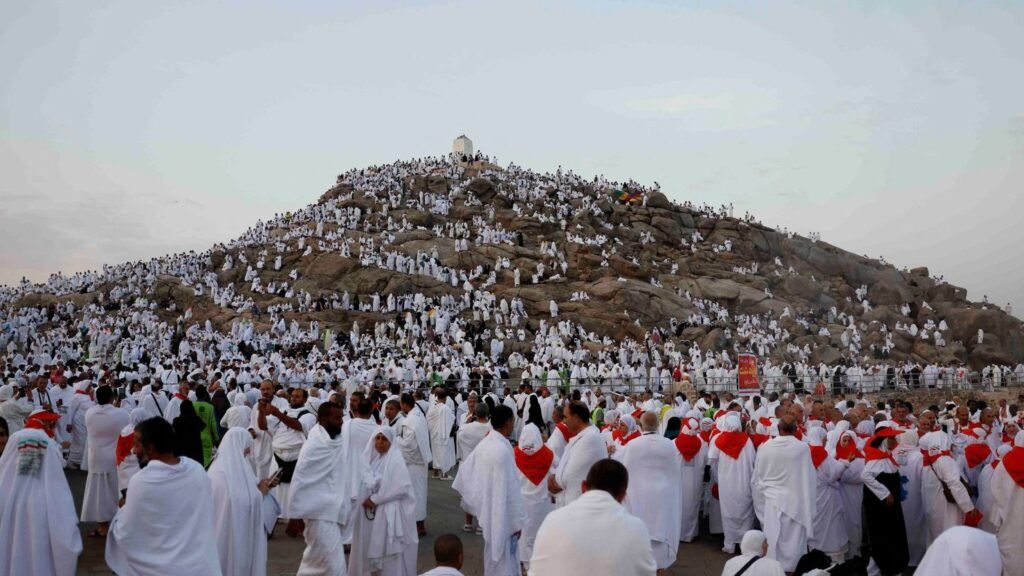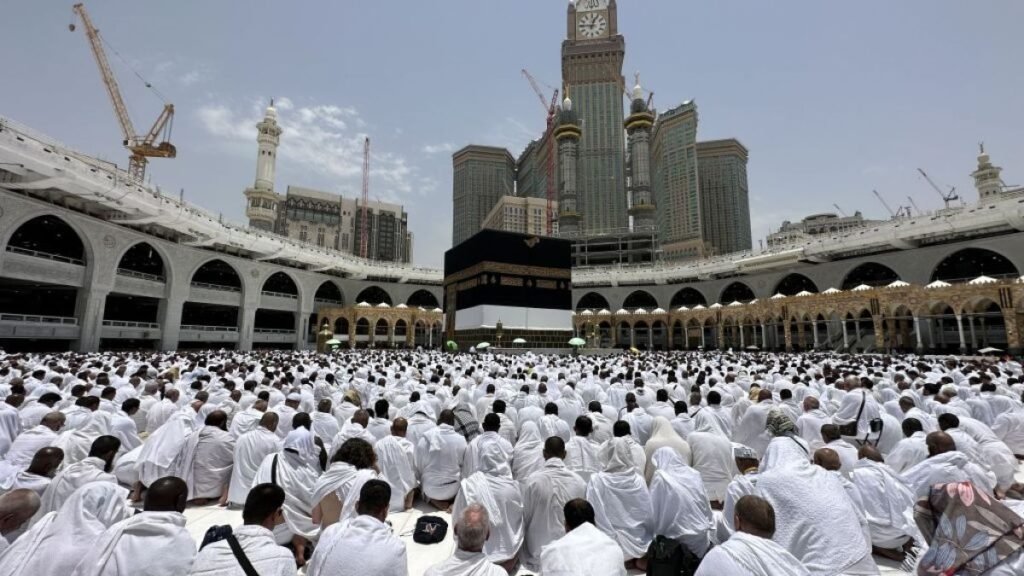The official “Hajj 2026: Pakistan’s New Digital Pilgrimage Policy” introduces sweeping reforms to elevate the spiritual journey. This initiative emphasizes full digitisation of pilgrimage process to ensure ease and efficiency. With a 70% government quota alongside a 30% private operators quota, the system now demands third party validation and real time tracking of payments and processing. Pilgrims will benefit from digital wristbands, mobile SIMs, and the enhanced Pak Hajj mobile app, making every step clearer. Reserved 1,000 hardship seats offer vital relief for urgent cases. By combining transparency and accountability with modern digital tools for pilgrims, Pakistan aims to deliver a secure, smooth and dignified Hajj experience. For more latest news checkout, Pakistan coverage.
Policy Highlights
Pakistan’s Hajj Policy 2026 marks a major shift. The federal cabinet has endorsed full digitisation of pilgrimage process to simplify every step. Under this policy, 70% government quota seats are now government‑managed, while the 30% private operators quota is strictly regulated. To ensure transparency and accountability, the system integrates third party validation for both government and private operators. The inclusion of 1,000 hardship seats ensures vulnerable pilgrims receive priority. Digital tools like Pak Hajj mobile app, digital wristbands, and mobile SIMs are core to delivering digital tools for pilgrims, along with upgraded lodging, meals, and emergency compensation system support.
Quota Allocation
The total Pakistan Hajj quota 2026 grants 179,210 pilgrims the opportunity to perform Hajj. Exactly 119,210 seats (70% government quota) are reserved for the government scheme. Meanwhile, 60,000 seats go to private tour operators under the 30% private operators quota. Private companies must meet financial criteria (financial eligibility for private operators) and serve at least minimum 2,000 pilgrims per operator to ensure service quality and accountability. Also, third party validation and real time tracking of payments and processing are mandatory for both sectors. Known private operators who failed in 2025 must now accommodate those pilgrims this year. This structure reinforces system fairness.
Digital Facilities
Pilgrims will get enhanced digital facilities such as digital wristbands that link identity to services. Each pilgrim receives a dedicated local mobile SIM for seamless communication and real time tracking of payments and processing. The improved Pak Hajj mobile app handles payments, training modules, digital complaint filing, and guidance at every phase. This suite of digital tools for pilgrims supports full digitisation of pilgrimage process and allows third party validation to oversee operations in real time. Government-private quota division becomes more transparent with these innovations. To get all the latest news, click here.
Pilgrim Services

Under Pakistan Hajj 2026 policy, pilgrims will experience upgraded lodging and meals. The policy promises quality based on the fees paid. It features an emergency compensation system to protect pilgrims in case of accidents or delays. Moavineen (Hajj assistants) are selected through transparent testing protocol (selection of Hajj assistants via testing) to enhance service consistency. The Pak Hajj mobile app supports complaints and guidance. Overall, the integration of emergency compensation system and upgraded lodging and meals ensures comfort, and transparency and accountability reinforce faith in services.
Operator Accountability
Private tour operators face tighter oversight under operator accountability rules. Each must serve a minimum 2,000 pilgrims per operator. Real‑time tracking ensures real time tracking of payments and processing so no misuse or delays occur. A neutral third party will audit both public and private operations (third party validation). Operators from 2025 who failed must now host affected pilgrims at no extra cost. This reinforces transparency and accountability and protects pilgrim rights using financial eligibility for private operators criteria.
Implementation Plan
The Hajj 2026 Pakistan digital policy is a joint effort between the Ministry of Religious Affairs and Ministry of IT. The Punjab IT Board and NITB help build and maintain the Pak Hajj mobile app, wristband system, SIM distribution, and tracking dashboards. Officials will train staff and Moavineen through digital modules. Each stage will be regularly reviewed by independent monitors. This ensures seamless roll‑out of full digitisation of pilgrimage process with third party validation. It also supports the government-private quota division and real time tracking of payments and processing. To Get all the news and updates from Pakistan, click here.
Key Dates
Applications for Hajj 2026 open on August 4, 2025 under the Hajj Policy 2026. Selection is on a first‑come, first‑served basis, aligned with Saudi timelines. To qualify for the government scheme (119,210 government quota seats) or private operators quota, applicants must have passports valid until November 26, 2026. Children under 12 will not be permitted. Payments begin with a first installment of Rs 500,000 for long package (38–42 days) or Rs 550,000 for short package (20–25 days). The second payment follows later as communicated by the ministry.
Table
| Item | Details |
| Total Quota 2026 | 179,210 pilgrims |
| Government Scheme Seats | 119,210 (70% government quota) |
| Private Sector Seats | 60,000 (30% private operators quota) |
| Reserved Hardship Seats | 1,000 hardship seats |
| Minimum per Private Operator | 2,000 pilgrims per operator |
| Key Digital Tools | Pak Hajj mobile app, digital wristbands, mobile SIMs |
| Oversight Mechanisms | Third party validation and real-time tracking of payments and processing |
Frequently Asked Questions (FAQs)
How much is Hajj from Pakistan 2026?
The estimated cost of the official Hajj package from Pakistan for 2026 ranges between Rs 1,150,000 and Rs 1,250,000 under the government scheme.
When to do Hajj in 2026?
Hajj 2026 will take place during Dhu al‑Hijjah, roughly between May 18 and June 15, 2026, aligning with the Islamic calendar dates of Hajj.
What is the Hajj policy for 2026?
The Hajj Policy 2026 mandates full digitisation of pilgrimage process, enforces a 70% government quota and 30% private operators quota, includes third party validation, real time tracking of payments and processing, and reserves 1,000 hardship seats Geo TV.
How to book for Hajj 2026?
Booking opens on August 4, 2025 via designated banks or official online portals on a first‑come, first‑served basis, after pre‑registration completion by July 9, 2025.
How much is Hajj 2026?
The Hajj 2026 cost in Pakistan’s government scheme is estimated at Rs 1.15 million to Rs 1.25 million depending on package type.








